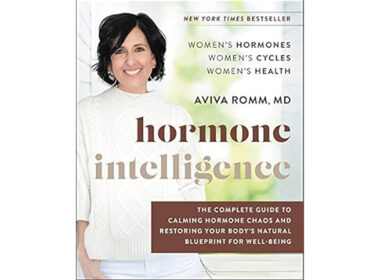An estimated 25 million Americans are affected by gallstones, and the vast majority of them are women.
Gallstones, which form when too much cholesterol or bilirubin builds up within the gallbladder, and then crystallizes, are the most common cause of gallbladder disease—a group of medical conditions affecting the gallbladder. Cholesterol gallstones are more common than bilirubin ones, which are often referred to as “pigment” stones. Gallstones may float freely within the gallbladder and cause little to no issue for the affected individual. In fact, many people with gallstones may have no idea they even have them. But when they do become a problem (by causing blockages in the biliary ducts or bowels, or causing inflammation and/or infection of the gallbladder or pancreas) they can cause serious side effects, sometimes requiring removal of the gallbladder itself.
Fortunately, human beings can live without their gallbladders, which function as carrying pouches for bile, a digestive fluid produced by the liver. Bile is released from the gallbladder into the small intestine after a meal, and is necessary for the digestion of fats, but absent a gallbladder, the liver will still produce bile. However, some individuals without gallbladders may experience malabsorption of fat, and an increase in diarrhea—especially when fatty meals are consumed. So while “life goes on” after gallbladder removal, it may require diet and lifestyle changes.
Among the traits that can increase one’s risk are a family history of gallstones, older age, obesity, losing a lot of weight very quickly, and belonging to certain ethnic groups (particularly, some Native American groups).
In addition, simply being a woman increases one’s chances of gallstones, as women are more likely to develop them than men.
A Women’s Health Problem
It is suspected that the female hormones estrogen and progesterone may be part of the reason why women are more susceptible to cholesterol gallstones than are men. The gallbladder has receptors for both hormones, and both seem to have a unique effect on the gallbladder, especially at elevated levels. Estrogen may cause increased cholesterol saturation of the bile, making it more likely to crystallize and form gallstones, and progesterone may cause decreased gallbladder motility. It is therefore suspected that increased levels of estrogen and/or progesterone from pregnancy, hormonal contraceptives, and hormone replacement therapy (for menopause) make women even more susceptible to developing gallstones.
Evidence on the hormonal contraception/gallbladder disease connection has long been mixed, and some argue that newer, lower-dose formulations of birth control carry less risk for gallstone formation than older, higher-dose formulations. However, a 2011 comparative safety study on the risk of gallbladder disease associated with hormonal birth control concluded that even newer formulations of hormonal birth control carried a statistically significant increased risk for the development of gallbladder disease. The study summed up the decades of data surrounding increased risk for gallbladder disease while using hormonal contraceptives as follows:
Studies have shown that long-term use of an oral contraceptive is associated with an increased risk of gallbladder disease compared with no use. A cohort study using data from the Nurse’s Health Study found a slight increase in the risk of gallstones among women who had used oral contraceptives for 15 years or longer (RR 1.5, 95% CI 1.10–2.20). Similarly, a meta-analysis of 26 observational studies found a 36% increase in the development of gallbladder disease among women who were using oral contraceptives compared with those not taking these drugs. Both estrogen and progesterone have been shown to increase the risk of gallstones. Estrogen has been shown to increase cholesterol production in the liver, with excess amounts precipitating in bile and leading to the formation of gallstones. Progesterone has been shown to decrease gall-bladder motility, which impedes bile flow and leads to gallstone formation.
Of course, pregnancy also elevates a woman’s risk for gallbladder disease. And because the risk for developing gallstones during pregnancy is highest during the last three months (the third trimester), women who have carried more pregnancies than others are at an elevated risk for developing gallstones. Eating a healthy, high-fiber diet, being a healthy weight before pregnancy, and not losing weight too quickly postpartum may help mitigate the increased risk of gallstone formation associated with pregnancy.
All of this information can feel like a Catch-22, lose-lose situation for women who face the risk of developing gallstones whether they’re trying to postpone pregnancy or trying to get pregnant. Fortunately, using Fertility Awareness-Based Methods of family planning can eliminate the need for women to experience hormonal birth control-related risks for developing gallstones, while still allowing them to safely and effectively plan their families. Thanks to FABM, also sometimes called natural family planning (NFP), women need not be saddled to an increased risk of gallstones, no matter what their family plans may be.
References
Etminan, Mahyar, et al. “Oral contraceptives and the risk of gallbladder disease: a comparative safety study.” Canadian Medical Association Journal (May 17, 2011) 899-904. https://www.ncbi.nlm.nih.gov/pmc/articles/PMC3091897/







